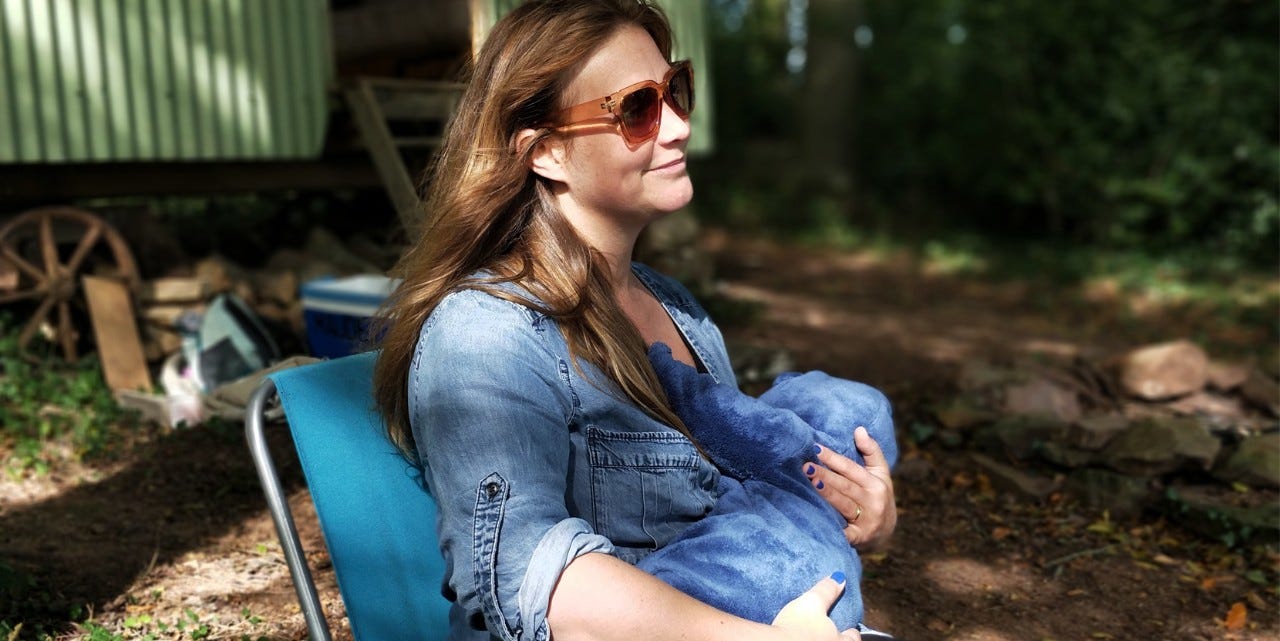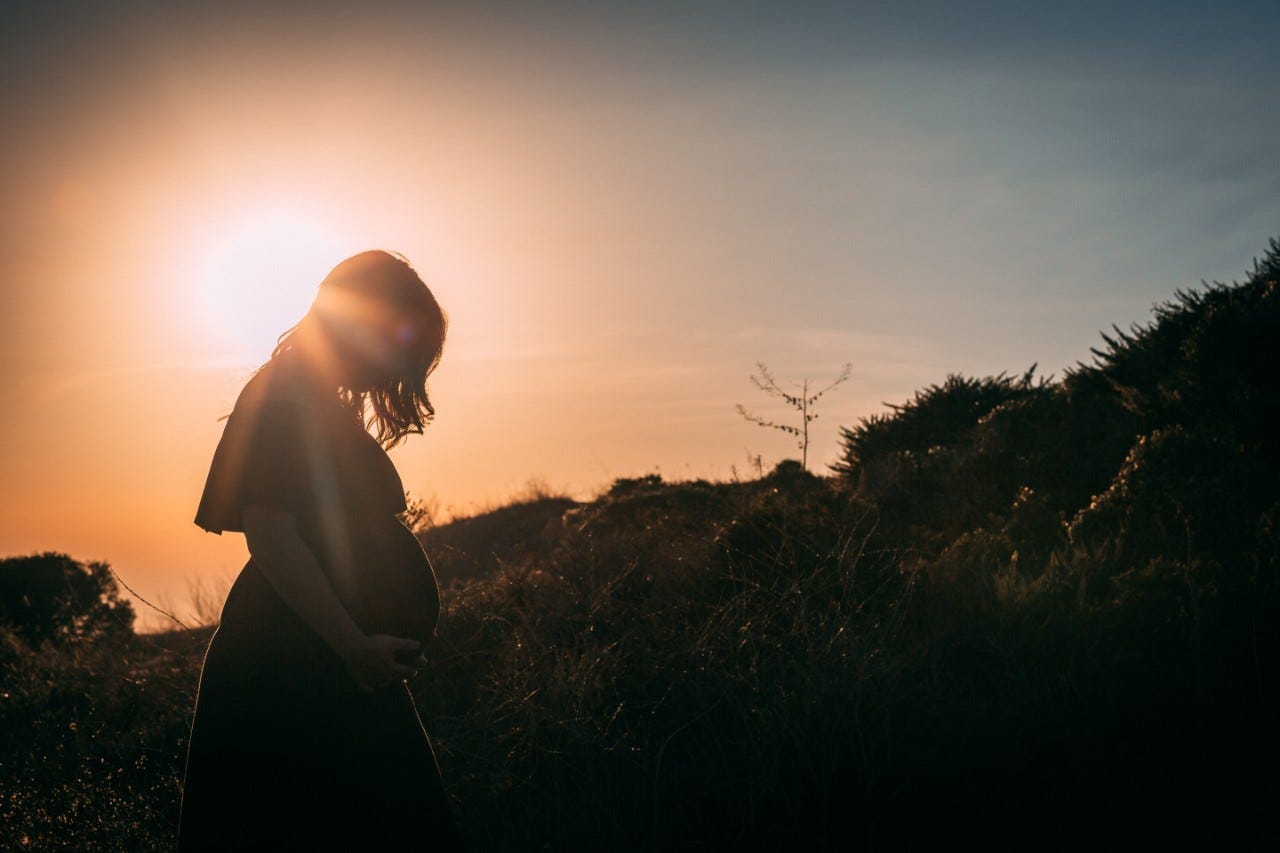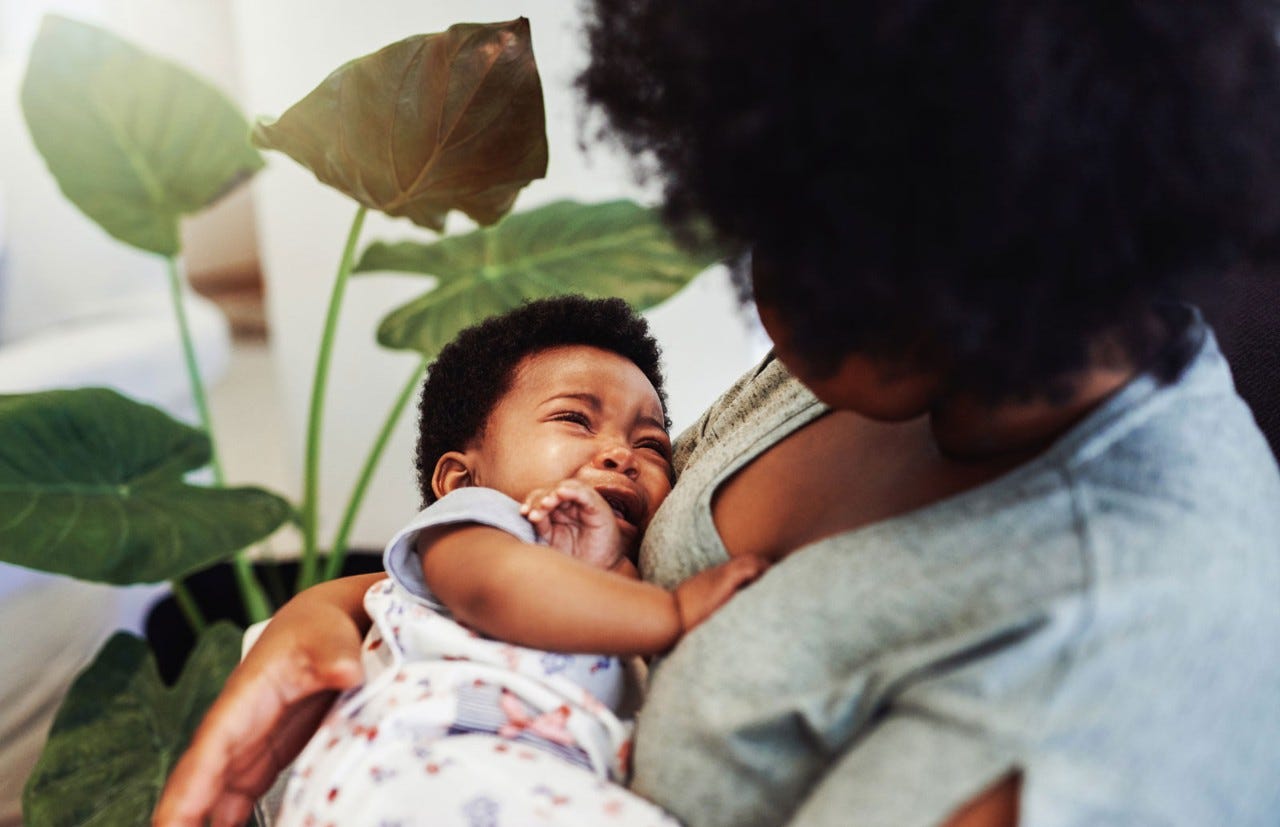Bonding with the baby
The first few hours of a child’s life are special. So it’s all the more important that parents and their new baby have the time and opportunity to enjoy them in peace.

Mums usually bond with their unborn baby during pregnancy. For dads, the birth is often the moment they first feel a close connection to their child.
Bonding in the first few hours
There’s no hard and fast rule about how long it takes parents to feel a close bond with their child. However, many experts agree that bonding in the first few hours, days and weeks after birth is important and defining for both parent and child. That’s why it is now common after a normal birth to give a newborn the opportunity to have direct skin-on-skin contact with the mother. This way, the baby smells his mum’s scent but also hears the heartbeat and voice familiar from his time in the womb. This gives the child a sense of security in a world that is still strange to him. A baby often looks automatically for the breast – some with great determination, while others take their time. Placing the baby directly on the mum’s chest straight after birth is also proven to have a positive effect on breastfeeding, which also encourages a close bond between mum and baby.
Parent-child relationship develops over time
Once the baby has arrived, the mum still has to deliver the placenta, and perhaps the perineum or caesarean section has to be sutured. This can give dads valuable time with their baby: Because now he is holding his child in his arms for the first time and is allowed to wash it. However, how much attention and protection the parents themselves can give the baby immediately after birth is not always within their control - after birth complications or a premature birth, for example. Nevertheless, parents can put the framework in place so they can make up for lost time in the days afterwards. For example, they can book a family room at the hospital to give themselves plenty of time and peace to care for themselves and their new baby.
Five big changes your baby will face after the birth
- Alternating noise and quiet instead of continuous soundscape and rocking: While still in the belly, gently rocking in the amniotic fluid, the child heard the continuous rustle of his mother’s blood, her heartbeat and muffled sounds from outside. Now the environment can sometimes be quiet and at other times incredibly loud.
- Hunger instead of all-round care: In the belly, the baby takes in and excretes amniotic fluid. He is supplied with all the nutrients he needs from his mum. Outside the belly, the baby has to exert itself to be fed. The baby has to actively drink his mother’s milk.
- Touch instead of isolation: In the belly, the baby’s skin is protected against all external factors. It is therefore important that he is touched very gently and carefully in the first few hours – preferably only by mum and dad. There is time for the scheduled newborn medical tests later on.
- Getting air instead of being supplied with oxygen: In the belly, your child gets a constant supply of oxygen via the umbilical cord. Once outside, he takes his first breath and the lungs develop. However, the baby still has to practise regular breathing; when asleep he often still breathes shallowly and quietly.
- Wide space instead of close security: Outside, the baby suddenly has lots more space around him. He can find this upsetting. He will settle most quickly if you hold him tightly in your arms. Many babies also calm down if they wear a thin hat – not just for warmth, but also because it gives them a sense of security.


